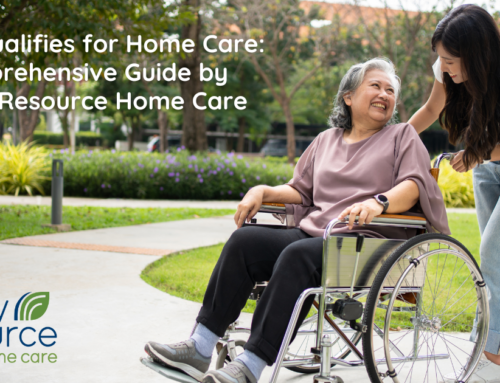Sometimes it’s obvious that an older adult needs in-home care. They may be confused when they’re performing what were once simple tasks, having a hard time making it to appointments, or not paying their bills on time. However, changes often happen gradually, making it challenging for a family member to decide if it’s time for our loved one to needs in-home care.
There are a couple of ways you can assess if your loved one needs in-home care:
- Personal observation
- A professional assessment by a credible home care agency
Before calling in an agency to assess your loved one’s care needs, look for some of these red flags that can indicate outside help is needed:
Mobility problems
Is your loved one falling more frequently? Evaluate their living space and look for potential hazards, such as furniture, like ottomans, placed in walkways, slippery throw rugs, and extension cords exposed where they can cause tripping. Also, observe how they move from room to room. Are they steady on their feet, or shuffling or dragging them as they walk?
Depression
Many seniors become depressed over health and financial issues or from being alone much of the time. Signs your loved one may be suffering from depression include a drop in their energy level, increased anger or irritability, a loss of interest in activities they once enjoyed, a change in sleeping and eating habits, and thoughts of death or suicide.
Forgetfulness
Forgetfulness caused by dementia is more than misplacing items around the house once in a while or forgetting a doctor’s appointment occasionally. Cognitive problems can manifest themselves not only through financial and medication mismanagement but also through a loss of insight or poor judgment, like leaving the bathtub running while watching a movie or repeated incidents of not turning off the oven or burners on the stove.
Poor money management
Are you noticing stacks of unopened mail, unpaid bills, uncashed checks, or unusual banking activities, like large donations to charities you don’t recognize?
Driving difficulties
Signs that a loved one is having challenges behind the wheel are multiple accidents and traffic tickets, an increasing number of dents and scratches on the car, and your loved one not remembering how they got where they drove to. When you’re riding with them, do they appear to be having cognitive problems or difficulty seeing?
Changes in appearance
Changes in appearance are often indicators that a senior needs assistance. Their personal hygiene may be suffering – body odor, matted hair, wearing dirty clothes, or not cutting their nails are signs that there could be cognitive issues or a problem with depression. Unexplained bruises are also a red flag.
Living conditions
Being observant when you’re in your loved one’s living space can also yield clues if they need home care. Soiled sheets, the smell of urine throughout the house, spoiled food in the refrigerator, and unused bathroom linens can signal cognitive decline or social isolation and loneliness.
If you’re noticing one or more of these red flags, it may be time to take the next step – having a trained professional do an assessment to asses if your loved one needs in-home care.
Many agencies, like Family Resource Home Care, will meet with you and assess your loved one’s care needs. They may recommend in-home care for a few hours a week to around-the-clock live-in home care. The services they provide address the red flags discussed above, including personal care, meal preparation, errands and transportation, companionship, dementia/Alzheimer’s care, etc.
If your loved one lives in the Pacific Northwest, call Family Resource Home Care today at (800) 775-6380 to schedule your FREE in-home evaluation, or contact one of our locations nearest you. We’ll provide your loved ones with the personalized care they need to age in place with dignity at home.






